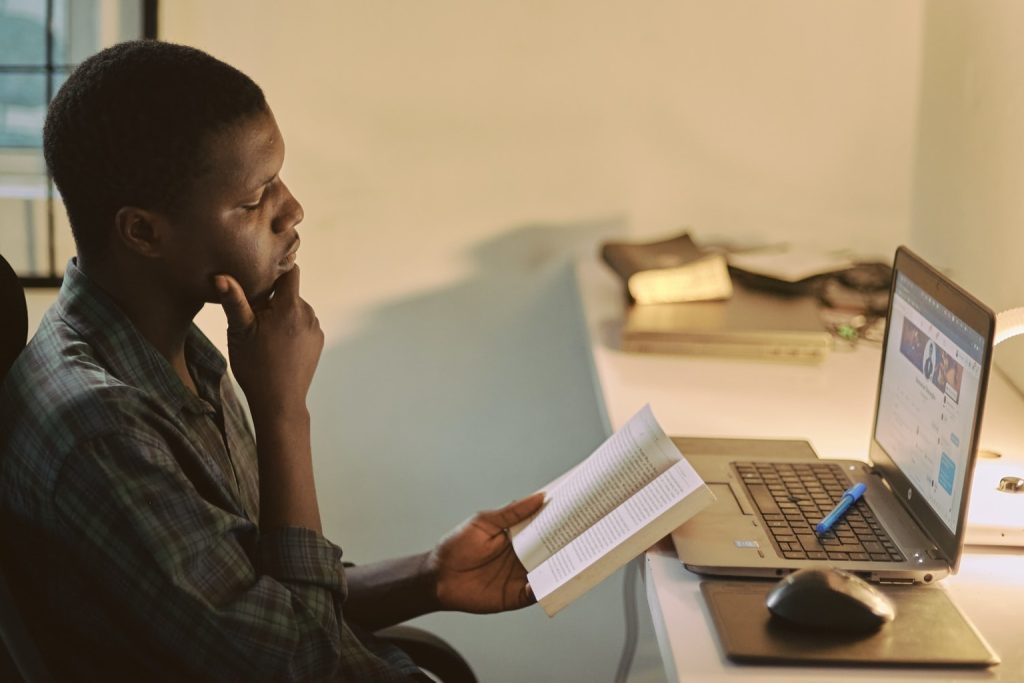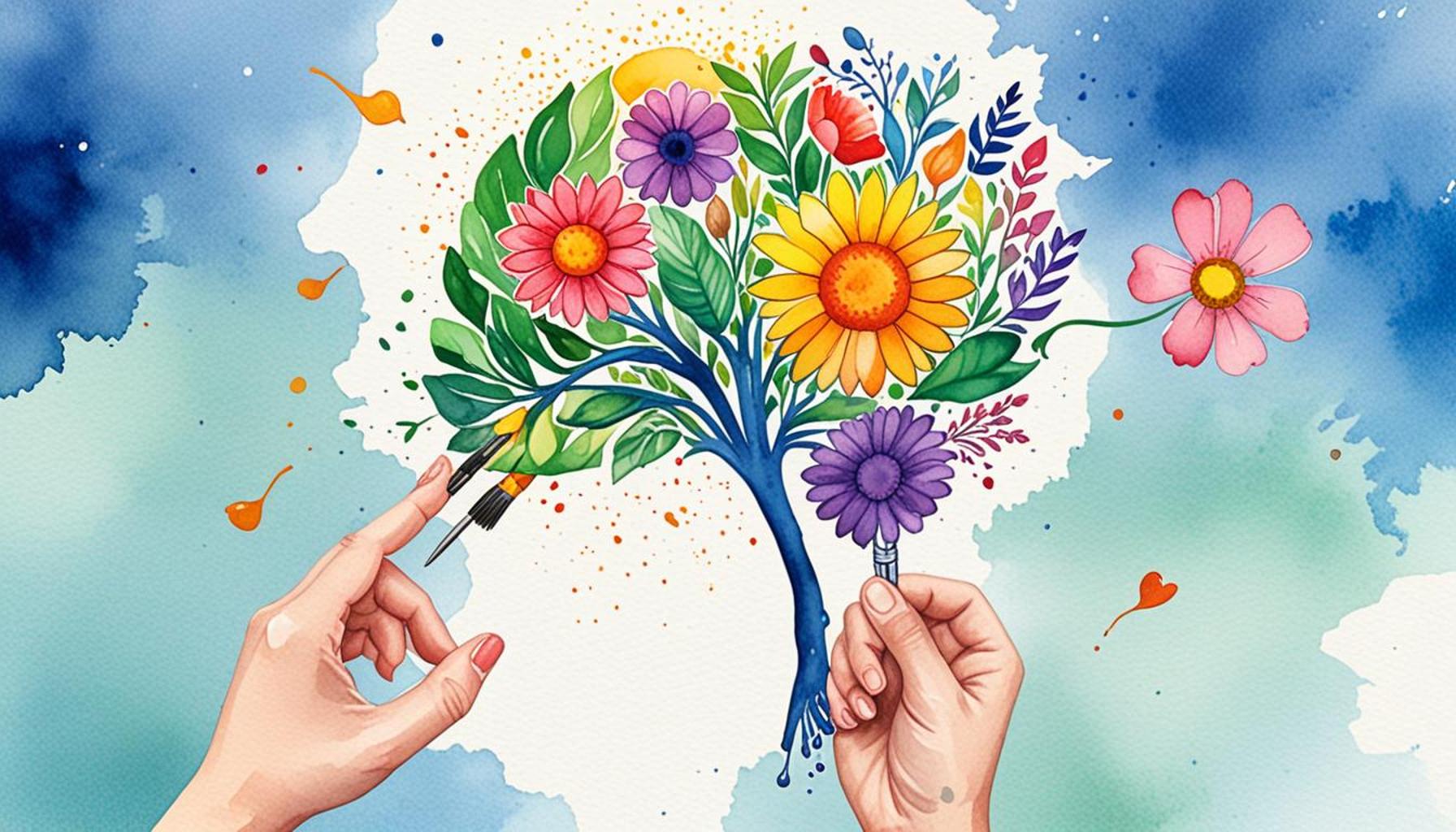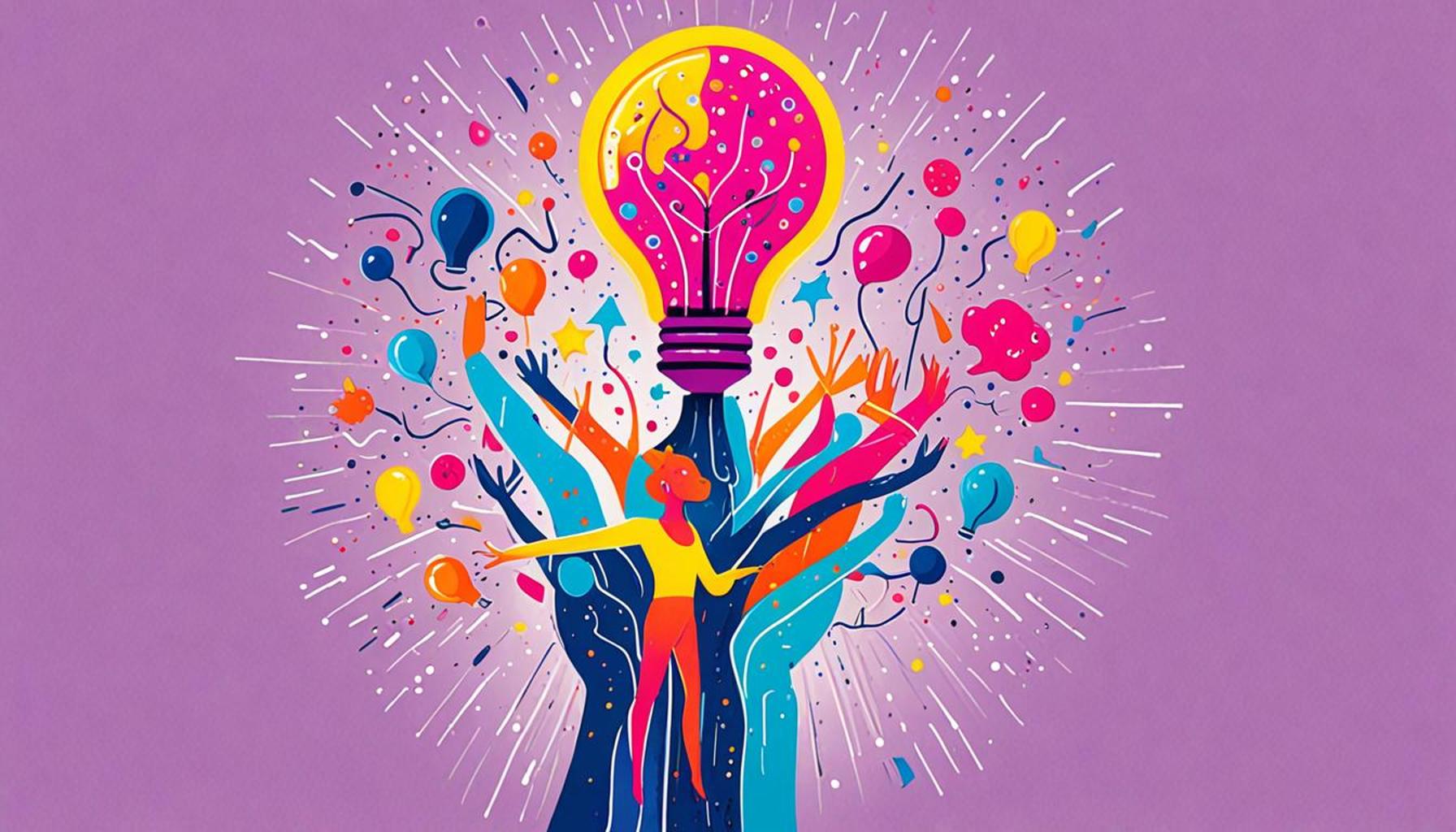The Importance of Self-Assessment in Learning from Feedback

The Power of Self-Assessment in Learning and Growth
In an era dominated by overwhelming information and rapid change, the ability to self-assess is increasingly vital for personal and professional development. While feedback from peers, mentors, or educators is foundational to learning, without a structured approach to self-assessment, its potential impact can be significantly underutilized. This transformative process goes beyond merely accepting criticism; it encompasses the systematic interpretation of feedback and the application of insights towards meaningful improvement.
Reflection: A Cornerstone of Self-Assessment
Effective self-assessment begins with reflection, a practice that encourages individuals to pause and critically analyze the feedback they receive. For instance, when students in Nigeria receive grades on their assignments, taking the time to reflect on those grades allows them to pinpoint specific areas that need attention, such as grammar or content comprehension. This introspection not only clarifies understanding but also uncovers recurring issues that might have otherwise gone unnoticed.
Embracing Ownership in Learning
The second key aspect of self-assessment is ownership. Taking full responsibility for one’s educational journey develops a sense of autonomy and boosts motivation. In environments where traditional teacher-led education is prevalent, such as many Nigerian classrooms, cultivating an ownership mentality can be revolutionary. For example, when students view their academic struggles as opportunities to learn rather than failures, they are more likely to seek out resources, ask questions, and engage actively in their learning process.
Setting Achievable Goals
Through the lens of self-assessment, goal setting becomes a critical pathway to consistent improvement. After identifying strengths and weaknesses, learners can craft precise, measurable objectives. For example, a Nigerian university student might set a goal to enhance their public speaking skills by joining a local debate club or participating in seminars. These concrete objectives not only direct their efforts but also provide markers for tracking progress.
Self-Assessment in Diverse Educational Settings
In a country like Nigeria, where educational experiences vary greatly from formal institutions to informal learning environments, the importance of self-assessment becomes even more pronounced. It empowers learners to:

- Enhance academic performance: By continuously evaluating their understanding, students can raise their grades and overall engagement in their studies.
- Develop essential skills sought by employers: Self-assessment helps individuals cultivate critical soft skills, such as communication and problem-solving, which are highly valued in today’s job market.
- Build resilience in facing challenges: The practice of reflecting on setbacks equips learners with the endurance to tackle future obstacles, fostering a mindset geared towards growth.
Adopting a self-assessment approach allows both students and professionals in Nigeria to navigate their personal and career paths with greater efficacy. This proactive strategy not only sharpens various skills but lays the groundwork for a philosophy of lifelong learning. As the world evolves, those who continue to assess, reflect, and adapt will invariably find themselves ahead in the race of constant change.
CHECK OUT: Click here to explore more
The Role of Self-Assessment in Enhancing Learning Outcomes
As the educational landscape in Nigeria continues to evolve, the significance of self-assessment emerges as a crucial element for both students and educators. This practice not only encourages a deeper interaction with feedback but also empowers learners to take charge of their educational journeys. By fostering a culture of self-assessment, individuals can unlock their potential and participate in their own growth—a necessity in a rapidly changing world.
Constructive Engagement with Feedback
Engaging with feedback constructively goes beyond simply acknowledging comments or grades; it requires an active participation in one’s learning process. For instance, consider a Nigerian secondary school student who receives feedback on a mathematics exam. Instead of merely focusing on the score, the student should dissect the remarks to understand where mistakes occurred, whether it be in problem-solving techniques or calculation errors. This approach is vital, as it transforms seemingly negative experiences into potential learning moments, encouraging students to ask pertinent questions about their performance.
The Process of Self-Discovery
Self-assessment also acts as a portal to self-discovery, allowing learners to uncover their individual learning styles and preferences. By examining feedback and reflecting on personal experiences, students can discern whether they are visual learners who benefit from charts and diagrams or auditory learners who grasp concepts better through discussion. Such insights enable tailor-made study strategies, promoting a more effective education journey. In diverse classrooms across Nigeria—from rural learning centers to urban public schools—this awareness can lead to varied approaches to learning that respect individual needs.
Encouraging a Growth Mindset
The adoption of a self-assessment framework is closely tied to cultivating a growth mindset, a term popularized by psychologist Carol Dweck. This mindset encourages individuals to view challenges as opportunities for improvement rather than insurmountable obstacles. For example, if a student fails to achieve a desired grade, embracing a growth mindset encourages them to strategize and seek help rather than crumbling under pressure. In Nigerian contexts where educational pressures are intense, promoting this mindset can foster resilience and a proactive approach to learning.
Practical Applications of Self-Assessment
The practical applications of self-assessment in various educational frameworks reveal its versatility and significance. Here are a few ways in which students can engage in this vital process:
- Peer Review: Students can assess each other’s work, providing and receiving feedback that promotes collaborative learning and social interaction.
- Journaling: Keeping a learning journal allows students to document their thoughts and progress, making it easier to identify patterns over time.
- Checklists: Utilizing self-created checklists to evaluate assignments or projects can enhance accountability and ensure comprehensive understanding.
- Self-Rubrics: Crafting their own grading rubrics helps students understand expectations and gives them clear markers for self-evaluation.
By embedding self-assessment daily, learners in Nigeria can elevate not only their academic performance but also their overall development. This habitual practice opens doors to ongoing improvement and encourages a proactive stance towards learning, setting the stage for future success.
The Role of Self-Assessment in Enhancing Learning
Self-assessment plays a critical role in the learning process, particularly when it comes to learning from feedback. By engaging in self-assessment, learners are encouraged to reflect on their own understanding and skills. This practice not only nurtures a deeper comprehension of the subject matter but also cultivates a mindset oriented towards growth and improvement. Incorporating regular self-assessment into learning routines allows individuals to identify specific areas where they excel and those that require more focus. This targeted approach is essential for adapting learning strategies to meet personal needs. For instance, by evaluating feedback received from educators or peers, learners can highlight patterns in their performance that may otherwise go unnoticed. Moreover, recognizing the significance of feedback fosters a culture of open-mindedness and receptivity to constructive criticism. When learners embrace feedback, they are more likely to take ownership of their education, leading to greater motivation and engagement. In this way, self-assessment works synergistically with feedback to create a dynamic learning environment that promotes continuous improvement.To further illustrate the advantages of self-assessment in learning from feedback, consider the following table:
| Category | Key Features |
|---|---|
| Increased Awareness | Self-assessment helps learners become more aware of their strengths and weaknesses, enabling them to take action. |
| Enhanced Motivation | By setting goals and tracking progress, learners are likely to feel more motivated to improve. |
Engaging with self-assessment not only empowers learners to benefit from feedback but also positions them for lifelong learning success. Integrating these practices into educational settings cultivates an environment where learners actively participate in their own development, making the process of learning more effective and meaningful.
CHECK OUT: Click here to explore more
The Impact of Self-Assessment on Long-Term Learning Habits
Self-assessment is not merely a tool for immediate improvement; it is a practice that lays the groundwork for enduring learning habits. When students regularly engage in evaluating their own progress, they internalize valuable skills that will serve them beyond academic settings. In Nigeria, where educational reform is increasingly focusing on competency-based learning, self-assessment can be an integral part of these transformative educational practices.
Fostering Independence and Responsibility
One of the most significant benefits of self-assessment is the nurturing of independence and responsibility among learners. The traditional model of education often places authority and accountability solely in the hands of teachers. However, when students actively participate in self-evaluation, they take ownership of their learning journeys. This independence is vital in fostering lifelong learners who are capable of navigating various challenges in both academic and professional domains. For example, a college student in Nigeria preparing for exams may utilize self-assessment to adapt their study strategies based on past feedback. Rather than wait for instructors’ evaluations, they become proactive, adjusting their methods according to their weaknesses and strengths observed through self-reflection.
Developing Critical Thinking Skills
Self-assessment also enhances critical thinking skills, enabling learners to analyze feedback from multiple perspectives. Students are prompted to question not just what they know, but also how they acquired that knowledge and how they can improve upon it. This cognitive process fosters a climate of inquiry which is essential for academic success. A Nigerian university student, for instance, might receive comments on their research paper. Rather than viewing the feedback as mere criticism, they could utilize self-assessment to determine not just what went wrong, but why it happened, leading to deeper intellectual engagement.
Bridging the Gap Between Theory and Practice
The practice of self-assessment serves as a bridge connecting theoretical learning with practical application. Through self-evaluation, students can better understand how concepts from their curriculum manifest in real-world scenarios. In a subject like business studies, Nigerian students might analyze case studies and apply self-assessment to determine the effectiveness of the strategies used. This approach enriches their learning experience and equips them with practical insights that are pivotal in today’s job market.
Encouraging Reflective Practices
Incorporating self-assessment fosters reflective practices that can significantly enhance retention and comprehension of information. Students who regularly engage in reflection are more likely to remember what they learned and understand it on a deeper level. For instance, a young learner in a Nigerian primary school can keep a reflection journal to record their thoughts on weekly lessons, helping reinforce their learning. Over time, this habit can evolve into a powerful tool for all subjects, making it easier for students to transition into more complex material as they progress in their education.
Promoting Emotional Intelligence
The emotional benefits of self-assessment cannot be overlooked. Engaging in this reflective practice promotes emotional intelligence by encouraging students to recognize their emotions related to performance outcomes. In the Nigerian educational context, where stress and anxiety can often accompany examinations and assessments, self-assessment equips students with coping mechanisms. For example, a high school student might reflect on stressors that affected their performance and then devise strategies to manage anxiety for future assessments. This form of emotional regulation is crucial as students mature into adults who can handle various life challenges.
Ultimately, fostering a culture of self-assessment enhances numerous aspects of student development. As Nigerian educational institutions embrace this evolving approach, they can create a more resilient, competent, and engaged student body, prepared to face the complexities of modern education and beyond.
SEE ALSO: Click here to read another article
Conclusion: Embracing Self-Assessment for Holistic Learning
In a rapidly evolving educational landscape, the role of self-assessment cannot be overstated. It stands as a transformative practice that empowers students to take control of their learning experiences by fostering a sense of ownership and responsibility in their academic journeys. From nurturing independence to enhancing critical thinking skills, self-assessment equips learners with essential tools that are vital for success in both their educational and future professional endeavors.
As students in Nigeria navigate the complexities of their educational system, integrating self-assessment into their routines encourages them to bridge the gap between theoretical knowledge and practical application. This reflective practice not only promotes a deeper comprehension of academic materials but also cultivates emotional intelligence—an invaluable asset in an increasingly competitive world. Students learn to identify their emotions, cope with stress, and adapt their strategies to improve outcomes, ultimately developing into balanced individuals ready to confront life’s challenges.
Moreover, the ongoing educational reforms in Nigeria highlight the relevance of self-assessment as a core component of competency-based learning. By fostering a culture that values self-reflection, educational institutions can create an environment that encourages resilience, engagement, and a commitment to lifelong learning. Therefore, as we continue to advocate for innovative educational practices, it is imperative to acknowledge the vital role of self-assessment in nurturing well-rounded, capable students who can thrive both academically and personally in the years to come.


